Five Career Paths for Audio Engineering Graduates
As part of our series exploring music careers, we look at five routes open to those keen to launch a career in audio engineering.
Studying music is an excellent way to prepare oneself for a career in the creative industries. From the studio to the stage, musicianship plays an integral role in a variety of vocations.
Music students will graduate with a deep understanding of the creative process, the articulation and development of complex concepts, and the curating and compiling of portfolios. They are comfortable with taking and receiving constructive criticism, working to creative briefs, and promoting their endeavours online.
Music graduates are passionate and diligent creators, working in the fields of performance, composition, production, education and across other industries. The technical skills and emotional intelligence needed to operate in the field provides graduates with versatile abilities that are transferrable to any vocation.
Here are some of the careers you can explore in the world of audio engineering:
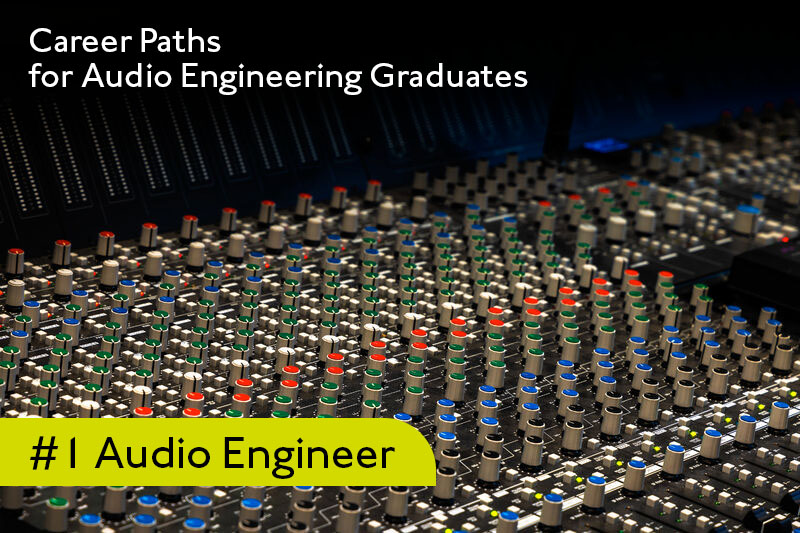
1. Audio Engineer
From recording artists, to mixing their sessions, Audio Engineers provide integral services that drive the music industry’s creative output. They record, process and sum audio signals, using a tool-belt of hardware, software and psycho-acoustic phenomena to creative effect. Shaping spatial, spectral and dynamic elements, they are responsible for readying and stylising audio projects for the mastering stage.
Key skills needed for this role include bedside manner, technical mixing ability and immaculate studio etiquette.
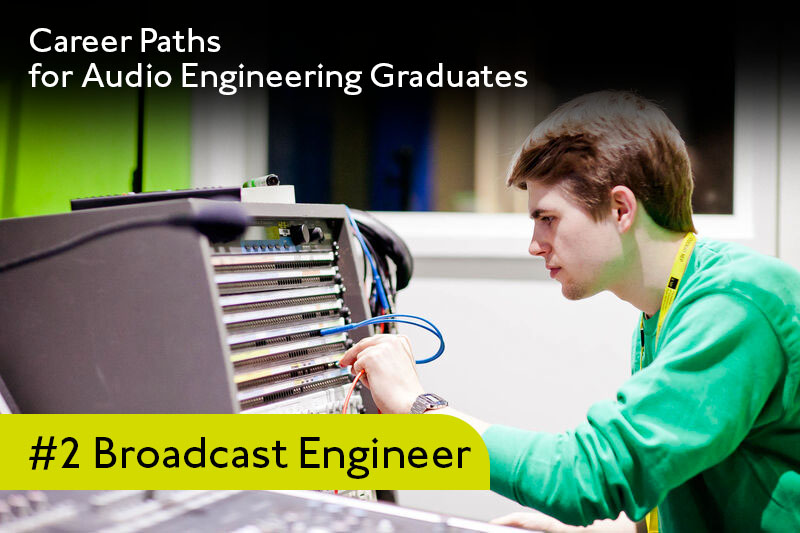
2. Broadcast Engineer
An integral role in live productions for TV and radio, Broadcast Engineers are responsible for the operating, maintaining and troubleshooting of on-set and studio equipment. Using hardware and software, Broadcast Engineers action instructions from directors and producers to ensure seamless transitions from live recordings to the studio or broadcast playback.
Key skills needed for this role include mechanical/technical knowledge, physical stamina and the ability to remain calm in high pressure environments.
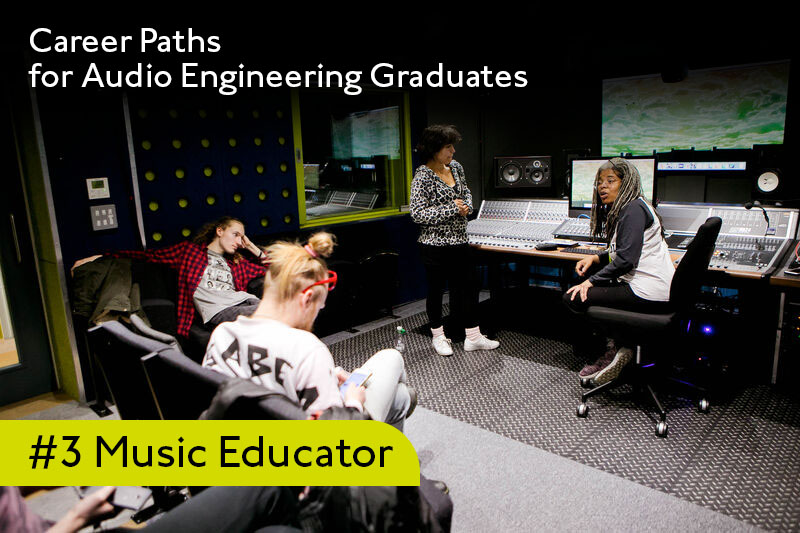
3. Educator
For those who have mastered their respective fields, a career in education can be a highly rewarding source of employment. Be it one-to-one tuition, schools or universities – there are countless opportunities to monetise educational music. Like many of our expert tutors, educators are often able to blend academic and industry work.
Key skills needed for this role include flawless technical knowledge, effective communication and emotional intelligence to attentively cater to your students’ needs.
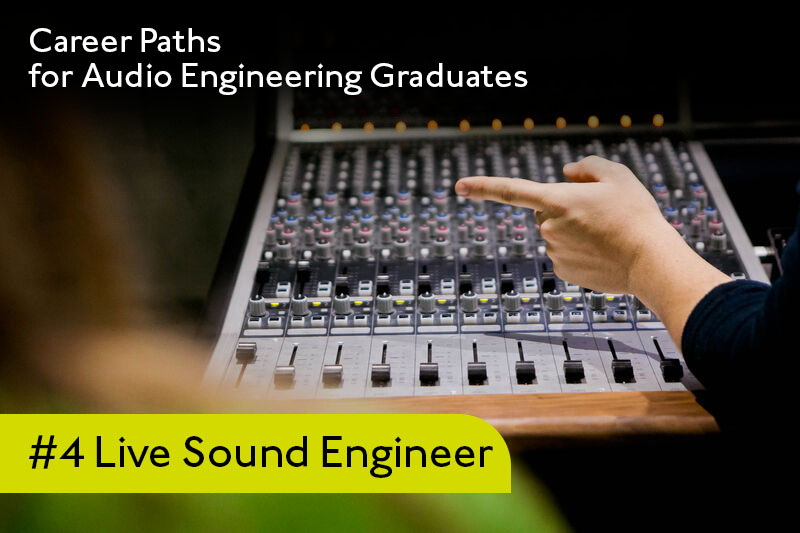
4. Live Sound Engineer
Live Sound Engineers ensure the best front of house and back of house mixes are available to both the performers and attendees of live events. They are responsible for the configuration, implementation and troubleshooting of venue sound-systems, performance and audio-visual equipment. Up to 69% of event brands have reported a lack of available Live-Sound Engineers, technicians and riggers, making this an excellent industry-space for new graduates to make an immediate impact.
Key skills needed for this role include technical mixing ability, high tech literacy and excellent improvisational abilities.
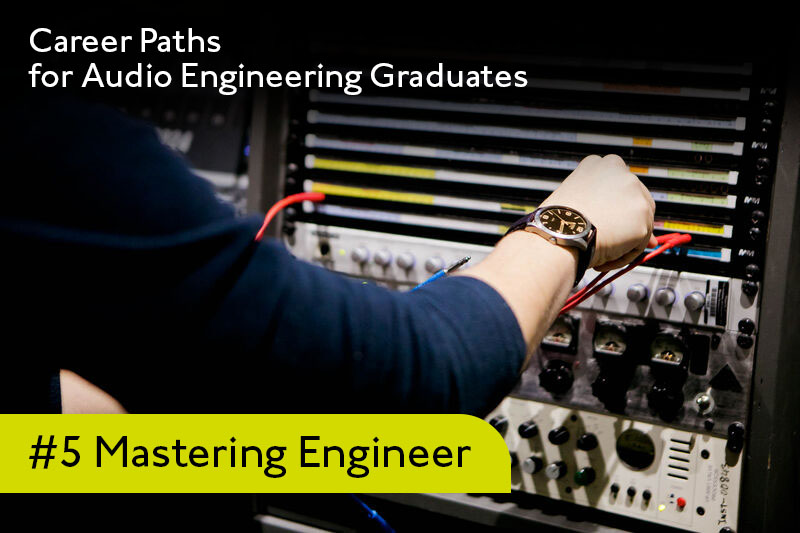
5. Mastering Engineer
Mastering Engineers take an interleaved stereo “Master” file once it has been summed by the Mixing Engineer and ready it for public release. Their task is to objectively optimise this interleaved file, applying processing to hone the mix-bus’ dynamic, spatial and spectral attributes. This is an incredibly nuanced process that is dependent on the neutral frequency response of the listening environment as much as the quality of the engineer. Other key tasks include adding the meta-data to the file and ensuring the master file is optimised across a variety of formats for differing deployment (such as a vinyl master, an instrumental-only mix, or radio mixes that are shorter in duration or have swear words removed).
Key skills needed for this role include comprehensive understanding of space and depth, high technical literacy and a deep ability to recognise and hone the sonically pleasing attributes of audio compositions.
Interested in a career in Audio Engineering?
If you're interested in launching a career as an Audio Engineer, we have various courses that will set you on your way. You could choose from:
Great producers change the way the world listens
If you’re looking to turn heads with your unique production style, ICMP’s pioneering approach to music education will provide everything you need. Our Music Production students benefit from fully equipped Audient and SSL recording studios, Mac Labs, world-class gear and an exceptional team of tutors. Plus there are masterclasses, exclusive events, collaborative opportunities, and a curriculum that covers studio and live work, engineering, composition, advanced skills, business and professional development.
To completely immerse yourself in your music career, chat with our friendly Admissions Team via email enquiries@icmp.ac.uk or give them a call on 020 7328 0222.
Production Courses
If you’re looking to turn heads with your unique production style, ICMP’s pioneering approach to music education will provide everything you need. Our Music Production students benefit from fully equipped Audient and SSL recording studios, Mac Labs, world-class gear and an exceptional team of tutors. Plus there are masterclasses, exclusive events, collaborative opportunities, and a curriculum that covers studio and live work, engineering, composition, advanced skills, business and professional development.
To completely immerse yourself in your music career, chat with our friendly Admissions Team via email enquiries@icmp.ac.uk or give them a call on 020 7328 0222.




